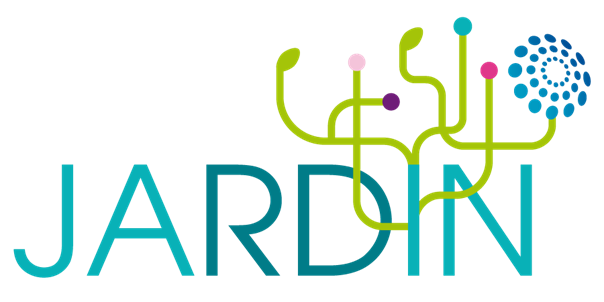In short

Although rare diseases affect around 30 million people in the European Union, diagnosis and treatment of these conditions are complicated by fragmented expertise, limited knowledge sharing and heterogeneous policy-making in the rare disease field.
The JARDIN project will strengthen the collaboration between European countries to improve diagnosis and treatment of people with rare diseases. It will stimulate medical knowledge and data sharing between European countries, helping doctors treat rare diseases faster and better — leading to better health outcomes and fairer access to specialized care across Europe. This will be achieved by promoting accessibility to European Reference Networks (ERNs) by integrating them into national health care systems.
The JARDIN consortium consists of 58 partners from 30 European countries. Sciensano specifically contributes to WP8 (Data Management) of the JARDIN project. Its objective is to develop recommendations ensuring the interoperability of data structures on member state level (local, regional and national) and ERN level, thereby contributing to more efficient data sharing.
Project description
European Reference Networks (ERN) are multinational networks of highly specialised healthcare providers (HCP) across Europe in thematically coherent medical domains, addressing rare or low-prevalence complex diseases requiring exceptional concentration of expertise and resources. There are currently 24 ERNs providing virtual expert consultations for patients from all member states (MS) and Norway, as well as support knowledge generation, professional training and education, and research.
The JARDIN project aims to enhance the impact of the ERN even further by addressing all aspects that can contribute to a better integration of ERNs into healthcare systems in the MS. This will include improving national governance of ERN-HCP (WP5), quality assurance models (WP5), patient pathways and ERN referral systems (WP6); supporting the formation of national reference networks and undiagnosed diseases programs (WP7); improving data management aiming to finally achieve full interoperability of regional, national and European health data sources (WP8); and identifying national support options for ERN-HCP (WP9). Furthermore, within the JARDIN project, strategies for systematic dissemination of information on the ERN will be developed, with a specific emphasis on patients as well as the medical community (WP2). A main focus will be to ensure the sustainability of the proposed actions and implementations, which should be integrated into updated national plans and strategies for rare diseases in MS (WP4).
Sciensano specifically contributes to WP8 (Data Management) of the JARDIN project. Its objective is to develop recommendations ensuring the interoperability of data structures on member state level (local, regional and national) and ERN level to advance rare disease patient outcomes. The objectives of WP8 are the following:
- Identify current barriers to rare disease data sharing and their existing solutions based on a survey
- Improve semantic accuracy and data interoperability by defining a set of minimum data elements to maximise the use of semantic standards for rare disease data sharing and by supporting ORPHAcode implementation at local, national, and European levels
- Propose and develop solutions to overcome organizational, technical and legal barriers to integration of national health systems and ERN data management, which will be implemented in HCPs from 4 pilot ERNs
- Transfer data from electronic health records (EHRs) to the Clinical Patient Management System (the GDPR-compliant IT platform of the ERNs promoting cross-border medical discussions) that will be piloted in HCPs from several countries
- Use of implemented Rare Disease datasets for monitoring HCP and ERN activities, and for data sharing with ERN registries (demonstrator projects in several countries with identification of indicators)
- Visualise Rare Disease Expert Centres, ERNs and national reference networks in a tool that helps patients and non-specialized medical professionals find rare disease experts and expert centres (based in the already existing German SE-Atlas application)
Sciensano's project investigator(s):
Service(s) working on this project
Partners




